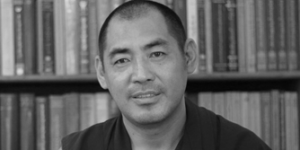
Geshe Lodoe Sangpo was born in Sendha village in the eastern part of Kham province in Tibet. He came to India in 1992 and enrolled in Gaden Jangtse Monastic University. After completing his monastic curriculum of Buddhist studies for nearly twenty years, he obtained the Geshe Lharamapa degree in 2018 after six years of board exams. He also completed one year of Buddhist Tantric Studies at Gyutö Monastery in 2019. Beyond Buddhist studies, Geshe-la has had significant exposure to studies in several disciplines of science studies. He received the Tenzin Gyatso Scholarship to attend Emory University from 2010 to 2013 to complete the ETSI Science Studies Program, and since has taught monastics science since. Currently, Geshe-la is Director of the Science Center at Gaden Jangtse Monastic University and after 2019, was appointed as Field Team Supervisor for Unit B of the Russian Team Lab of the Tukdam Collaborative Study with CHM. Unit B coordinates the Mundgod region monasteries, including Drepung Gomang & Loseling and Gaden Jangtse & Shartse monasteries. In 2024, he was appointed Associate Director of the Tukdam Study, while still serving as Field Team Supervisor for Unit B. He also serves as a researcher in the Lucid Dreaming & Dream Yoga Study as part of the Emory-Tibet Science Initiative Research Program.
Education
Geshe Lharampa, Buddhist Studies, Gaden Jangtse Monastic University
Advanced Study Practicum, Buddhist Tantric Studies, Gyuto Monastery
Emory-Tibet Science Initiative Program Graduate, Emory University
Links
Related Studies
The Field Study of Long-term Meditation Practitioners and the Tukdam Post-death Meditative State
A global community of field researchers are collaborating on a study of an ancient monastic post-mortem meditative state known as tukdam, practiced by present-day expert Tibetan Buddhists and how such a practice might offer insight into mental, spiritual, and physical well-being during the death process, both for the dying and for their support community.


